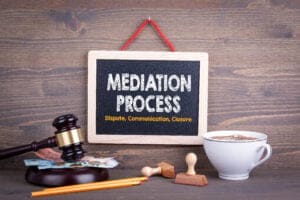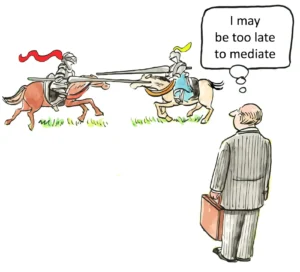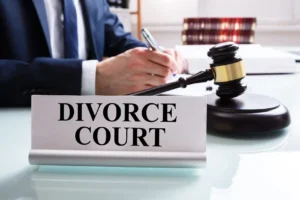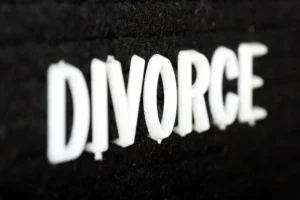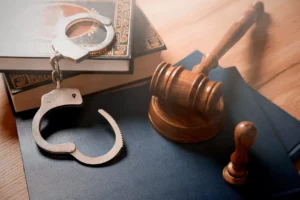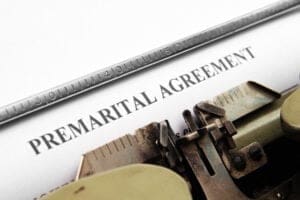How to Fight a Speeding Ticket: Comprehensive Legal Defense Strategies for American Drivers
Individuals facing speeding citations frequently ask, “Can I successfully fight a speeding ticket in court?” The answer depends on understanding your constitutional protections, available defense strategies, and the specific circumstances surrounding your citation. Unlike simply paying the fine and accepting points on your driving record, contesting a speeding ticket can protect your driving privileges, prevent insurance increases, and uphold fundamental due process rights.
Traffic ticket defense represents more than challenging a single citation—it involves protecting your constitutional right to due process and ensuring law enforcement follows proper procedures. Modern speeding enforcement relies heavily on technology and officer observations that can be challenged through systematic legal analysis.
What Are Your Constitutional Rights When Fighting a Speeding Ticket?
The Fourth Amendment protects citizens from unreasonable searches and seizures, including traffic stops. Law enforcement must have reasonable suspicion to initiate a traffic stop, and the subsequent citation must be based on reliable evidence. Due process rights guarantee that defendants can challenge evidence and cross-examine witnesses in traffic court proceedings.
Constitutional protections extend beyond the initial stop. The Sixth Amendment ensures your right to confront witnesses, while the Fourteenth Amendment’s Equal Protection Clause prevents discriminatory enforcement practices. These fundamental rights form the foundation of effective speeding ticket defense strategies.
Understanding Burden of Proof in Traffic Court
Prosecutors must prove beyond a reasonable doubt that you violated speed limits as charged. This burden requires establishing several elements: you were driving the vehicle, you exceeded the posted speed limit, and the officer’s measurement was accurate. Each element creates opportunities for legal challenges based on constitutional principles.
The presumption of innocence applies equally in traffic court and criminal proceedings. Defendants have no obligation to prove their innocence—rather, the state must present compelling evidence supporting each element of the alleged violation. This principle protects individual liberty while ensuring proper government accountability.
How Do State Laws Impact Your Ability to Contest Speeding Tickets?
State traffic laws vary significantly regarding speeding violations and available defenses. Some jurisdictions follow “absolute speed limits” where exceeding posted limits constitutes automatic violations. Other states employ “prima facie” standards that allow defendants to argue their speed was reasonable under existing conditions.
Jurisdictional differences affect everything from penalty structures to available plea options. Southern states typically provide broader defendant rights and more flexible sentencing, while coastal jurisdictions often impose stricter penalties and limited plea bargaining opportunities.
Regional Variations in Traffic Court Procedures
Virginia maintains some of the nation’s strictest speeding enforcement, with limited opportunities for ticket reduction or dismissal. Conversely, states like Hawaii offer structured mitigation processes that allow fine reductions based on driver history and circumstances.
Understanding local court rules proves essential for effective defense strategies. Some jurisdictions require written statements within specific timeframes, while others mandate in-person appearances for all contested citations7. Professional legal representation ensures compliance with applicable procedural requirements.
What Evidence Can You Use to Challenge Radar and Laser Measurements?
Radar gun accuracy represents the most common technical defense in speeding cases. These devices require regular calibration and proper operation to produce reliable readings. Officers must maintain equipment according to manufacturer specifications and demonstrate proper training in device operation.
Challenging speed detection equipment involves requesting maintenance records, calibration certificates, and officer training documentation. Environmental factors including weather conditions, nearby radio transmissions, and reflective surfaces can interfere with accurate speed measurement.
Questioning Officer Training and Equipment Maintenance
Law enforcement agencies must maintain detailed records of radar and laser device calibration, typically performed monthly or quarterly depending on manufacturer requirements. Missing or incomplete maintenance records can undermine the reliability of speed measurements and create reasonable doubt about citation accuracy.
Officer training requirements vary by jurisdiction, but most require initial certification and periodic recertification on speed detection equipment. Inadequate training or expired certifications can render speed measurements inadmissible, providing strong grounds for case dismissal.
Equipment malfunction defenses require demonstrating that speed detection devices produced inaccurate readings due to mechanical failure or improper operation. Expert testimony regarding device limitations and common failure modes can support technical challenges to prosecution evidence.
How Can You Challenge the Accuracy of Speed Limit Signage?
Inadequate signage provides viable defense strategies when speed limit signs fail to meet legal requirements for visibility, placement, or compliance with transportation department standards. Signs obscured by vegetation, improperly positioned, or damaged may render speeding citations invalid.
Traffic control devices must comply with Manual on Uniform Traffic Control Devices (MUTCD) standards regarding size, reflectivity, and placement. Deviations from these federal standards can invalidate speed limit enforcement in affected areas.
Documenting Sign Visibility and Compliance Issues
Photographic evidence documenting sign obstruction, damage, or non-compliance strengthens signage defense arguments. Time-stamped photographs showing conditions at the citation location help establish that reasonable drivers could not identify applicable speed limits.
Construction zones often involve temporary speed limit changes that require specific signage protocols. Improper notification of reduced speed limits in work zones can provide grounds for citation dismissal, particularly when construction activities are not actively occurring.
What Role Does the Necessity Defense Play in Speeding Cases?
Emergency situations can justify temporary speed limit violations when drivers face imminent threats requiring immediate action. The necessity defense applies when speeding prevents greater harm, such as avoiding accidents or responding to medical emergencies.
Courts recognize necessity defenses when defendants demonstrate they faced immediate danger not of their own making, had no reasonable alternative, and ceased speeding once the emergency passed. Medical emergencies, avoiding aggressive drivers, or preventing accidents can support necessity claims.
Establishing Valid Emergency Circumstances
Effective necessity defenses require documentation supporting emergency claims. Medical records, witness statements, or physical evidence of dangerous conditions can substantiate arguments that speeding was the only reasonable response to immediate threats.
Personal convenience or routine urgency rarely qualifies for necessity protection. Courts distinguish between genuine emergencies requiring immediate action and everyday situations where drivers choose to speed for personal reasons. Professional legal analysis helps identify viable necessity claims while avoiding frivolous arguments.
How Should You Prepare for Traffic Court Proceedings?
Court preparation begins with thorough case analysis including citation review, evidence gathering, and witness identification. Examine tickets for factual errors regarding vehicle information, location details, or timing that can undermine prosecution cases.
Document collection should include maintenance records for your vehicle’s speedometer, GPS data showing your actual speed, and photographs of citation locations. Witness statements from passengers or other observers can provide crucial testimony supporting your defense.
Understanding Traffic Court Procedures and Expectations
Traffic courts follow formal legal procedures despite their informal atmosphere. Defendants should dress professionally, arrive early, and understand proper courtroom etiquette. Addressing judges as “Your Honor” and speaking only when authorized demonstrates respect for judicial proceedings.
Plea options typically include guilty, not guilty, or no contest pleas, each carrying different legal consequences. Guilty pleas waive all rights to contest the citation, while not guilty pleas preserve your right to trial. No contest pleas accept responsibility without admitting guilt for civil liability purposes.
What Questions Should You Ask the Citing Officer?
Cross-examination strategies focus on officer memory, training, and procedures used during the traffic stop. Specific questions about equipment operation, environmental conditions, and identification procedures can reveal weaknesses in prosecution cases.
Effective questioning addresses officer training on speed detection equipment, device calibration dates, and environmental factors that might affect measurement accuracy. Officers’ inability to recall specific details about your stop can create reasonable doubt about citation reliability.
Challenging Officer Observations and Memory
Time gaps between citations and court hearings can affect officer memory of specific stops. Officers issuing multiple citations daily may struggle to recall details about individual cases, creating opportunities to challenge their testimony1.
Visual estimation techniques used by officers lack the precision of electronic speed detection. Questioning officers about their ability to accurately estimate vehicle speeds, especially during nighttime or adverse weather conditions, can undermine subjective speed determinations.
When Should You Consider Hiring Professional Legal Representation?
Traffic attorneys specializing in moving violations understand local court procedures, judge tendencies, and effective defense strategies unavailable to self-represented defendants. Professional representation proves particularly valuable for commercial drivers, repeat offenders, or cases involving serious penalties.
Cost-benefit analysis should consider potential insurance increases, license point accumulation, and professional licensing implications. Commercial drivers facing potential license suspension may benefit from legal representation despite higher upfront costs.
Evaluating Attorney Qualifications and Experience
Select attorneys with specific experience in traffic law rather than general practitioners. Local practice experience proves valuable given variations in court procedures, judge preferences, and prosecution practices between jurisdictions1.
Successful plea bargain strategies often depend on attorney relationships with local prosecutors and understanding of available alternative dispositions. Experienced traffic attorneys can negotiate reduced charges, deferred adjudication, or alternative penalties unavailable to self-represented defendants.
How Do Speed Detection Technologies Create Defense Opportunities?
Modern radar technology operates on Doppler shift principles that can be affected by multiple factors including weather, radio interference, and operator error. Understanding these limitations creates opportunities for technical challenges to speed measurements.
LIDAR devices offer greater accuracy than traditional radar but require proper targeting and operation procedures. Officers must maintain steady aim on specific vehicles for accurate readings, creating potential challenges based on operator technique and environmental conditions.
Understanding Equipment Limitations and Error Sources
Calibration requirements for speed detection equipment create documentation trails that defense attorneys can examine for compliance gaps. Missing calibration records or expired certifications can render speed measurements inadmissible in court proceedings.
Cosine error occurs when radar devices measure speeds at angles rather than directly behind vehicles, potentially producing inflated readings. Officers must account for positioning angles to ensure accurate measurements, creating opportunities for mathematical challenges to recorded speeds.
What Are the Long-Term Consequences of Speeding Convictions?
Insurance implications extend far beyond immediate fines, with rate increases lasting three to seven years depending on insurer policies. Single speeding convictions can increase premiums by 15-30%, while multiple violations may result in policy cancellation.
Professional licensing consequences affect commercial drivers, delivery personnel, and transportation industry workers. Point accumulation can trigger license suspensions that eliminate employment opportunities in driving-related occupations.
Understanding Point Systems and License Implications
State point systems assign values to different traffic violations, with license suspensions triggered when drivers accumulate specified point totals within designated timeframes. Speeding violations typically carry 2-6 points depending on excess speed over posted limits.
License suspension procedures vary by state but generally include administrative hearings where drivers can challenge point accumulation or request restricted driving privileges. Professional legal representation proves crucial during these proceedings given potential career implications.
How Does Technology Impact Modern Speeding Ticket Defense?
GPS evidence from smartphones or vehicle navigation systems can provide precise speed data contradicting officer observations. Modern devices record detailed location and speed information that can support defense arguments regarding actual travel speeds.
Dashboard cameras and smartphone applications increasingly provide video evidence of traffic stops, including speedometer readings and environmental conditions. This technological evidence can corroborate defendant testimony and challenge officer observations.
Utilizing Digital Evidence in Traffic Court
Cell phone GPS logs require proper authentication and chain of custody procedures to be admissible in court proceedings. Technical experts may be necessary to explain GPS accuracy and demonstrate device reliability for legal purposes3.
Smartphone applications designed for drivers often include speed monitoring features that can provide contemporaneous evidence of actual travel speeds. Courts increasingly accept this digital evidence when properly authenticated and correlated with citation times and locations.
What Mistakes Should You Avoid When Fighting Speeding Tickets?
Common errors include admitting guilt during traffic stops, failing to document citation circumstances, and missing court deadlines. Any admission of excessive speed to officers can be used against you in subsequent court proceedings.
Procedural mistakes such as missing filing deadlines or failing to request necessary documentation can waive important defense rights. Traffic court procedures often involve strict timeframes that cannot be extended without good cause shown to the court.
Understanding What Not to Say During Traffic Stops
Avoid discussing your speed with officers during traffic stops. Standard responses to questions about travel speed should focus on compliance with traffic flow rather than specific numerical estimates.
Miranda rights do not apply to routine traffic stops, meaning officers can use voluntary statements against you in court. Polite cooperation during stops should not extend to providing evidence supporting speeding allegations.
How Do Commercial Drivers Face Different Challenges?
Commercial license holders face stricter standards for traffic violations, with some speeding convictions resulting in immediate disqualification from commercial driving. Federal Motor Carrier Safety Administration regulations impose penalties that exceed standard driver’s license consequences.
Professional drivers often cannot afford to accept plea bargains that civilian drivers might consider reasonable. Point accumulation or moving violations can trigger employer disciplinary actions or prevent future employment in transportation industries.
Understanding Federal Regulations and Professional Implications
Commercial drivers must report traffic citations to employers within specified timeframes, regardless of conviction outcomes. This reporting requirement means that even dismissed citations can affect professional standing and employment security.
Safety ratings for commercial motor vehicle operators are affected by any traffic violations, creating long-term career implications beyond immediate legal consequences. Professional legal representation proves essential for protecting commercial driving careers.
What Are Alternative Resolutions to Fighting Speeding Tickets?
Traffic school options provide alternatives to traditional court proceedings in many jurisdictions. Completing approved driving courses can result in citation dismissal or point reduction, depending on state laws and driver history.
Deferred adjudication programs allow drivers to avoid convictions by completing probationary periods without additional violations. These programs typically require admission of responsibility but prevent convictions from appearing on driving records.
Understanding Mitigation and Plea Options
Mitigation hearings focus on penalty reduction rather than guilt or innocence determinations. Drivers can present evidence of clean driving records, financial hardship, or other circumstances supporting reduced fines.
Plea negotiations may result in reduced charges that carry fewer points or lower insurance implications. Prosecutors often accept pleas to non-moving violations that avoid license points while still generating revenue for jurisdictions.
How Do Recent Legal Trends Affect Speeding Ticket Defense?
Constitutional challenges to traffic enforcement increasingly focus on Equal Protection violations and discriminatory policing practices. Courts have recognized that selective enforcement based on racial profiling violates fundamental constitutional principles.
Technology integration in law enforcement creates new opportunities for both prosecution and defense. Body cameras, automated enforcement systems, and digital citation processing change traditional traffic court procedures while creating new evidence sources.
Understanding Evolving Privacy Rights and Traffic Enforcement
Digital privacy rights intersect with traffic enforcement as vehicles become increasingly connected to internet services and smartphone applications. Location data and vehicle telemetrics create new forms of evidence that courts are still learning to address.
Automated speed enforcement systems raise constitutional questions about due process rights and the ability to confront accusers. Some jurisdictions have limited or banned these systems based on constitutional challenges and public policy concerns.
The legal framework surrounding speeding ticket defense reflects core constitutional principles that protect individual rights while maintaining public safety. Traffic enforcement must balance legitimate government interests in road safety with fundamental protections against arbitrary government action.
Professional legal analysis of speeding citations protects not only individual drivers but also constitutional principles that require proper procedures and reliable evidence in all government prosecutions. Whether challenging technical evidence, asserting constitutional rights, or negotiating alternative resolutions, effective defense strategies uphold the rule of law while protecting individual liberty.
Modern speeding ticket defense requires understanding both traditional legal principles and emerging technological challenges. Drivers who invest in proper legal analysis benefit from constitutional protections while contributing to systemic accountability that serves broader public interests in fair and consistent law enforcement.
The decision to contest a speeding citation should be based on careful analysis of available evidence, potential consequences, and constitutional principles at stake. This approach reflects both sound legal judgment and civic responsibility that strengthens our system of ordered liberty under law.
- How to Fight a Speeding Ticket Guide
- Hawaii Traffic Court Moving Citations Self-Help Guide
- Hawaii Traffic Court Cases Self-Help Information
- How to Fight Traffic Tickets Five Strategies That Work
- Beat a Speeding Ticket What You Need to Know
- The Constitutionality of Income-Based Fines Academic Research
- Martin Luther King Jr And Pretext Stops Legal Analysis
- National Highway Traffic Safety Research on Speed Enforcement







